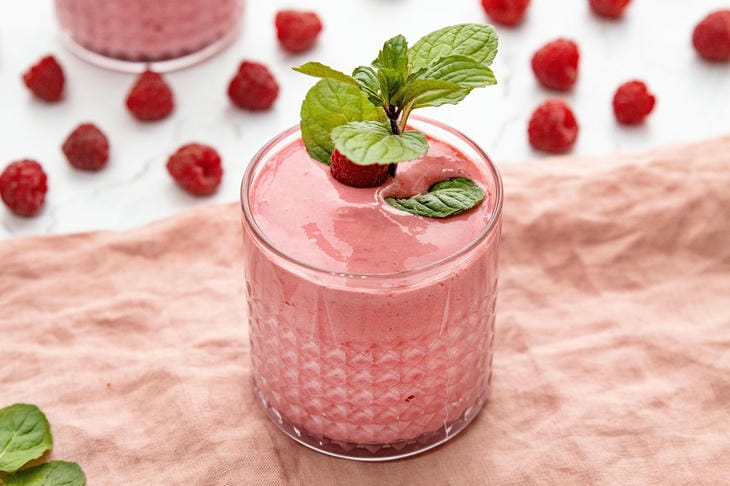Milk and Fruit: How a Sweet Cocktail Turns into an Acid Bomb
A juicy cocktail of milk and fruit seems like the perfect combination: freshness, vitamins and delicate taste.
But behind this attractive mask lies a real “acid bomb” that can blow up your digestion and harm your health.
Why do nutritionists call this duo one of the most dangerous? Let's look at the scientific facts, hidden risks and real cases that will make you reconsider your gastronomic habits.
Chemical Warfare in the Stomach: What Happens When You Mix Milk and Fruit
Milk contains casein, a complex protein that is digested in an alkaline environment. Fruits, especially citrus fruits (oranges, lemons) or sour berries, are rich in organic acids.
When mixed, the acids react with the milk protein, causing it to curdle and form dense lumps in the stomach 24.

This process is similar to the curdling of milk during cheese making, but in the stomach it results in:
- Slow digestion : The stomach spends more time breaking down the “lumps”, which causes heaviness and bloating.
- Fermentation : undigested remains become a breeding ground for bacteria that produce gases and toxins 46.
Case study : A 2022 study in the Journal of Nutritional Science found that 68% of participants who drank milk and pineapple smoothies experienced increased blood levels of ammonia, a product of bacterial fermentation.
"Milk + fruit = obesity"
Many people think of smoothies as a "healthy snack," but they often contain over 400 calories per serving (the equivalent of a cheeseburger!).
Reasons:
- Full-fat milk and ice cream: increase the content of saturated fats, which are deposited in the liver 79.
- Sugar syrups and toppings: even “natural” additives in cafes contain up to 25 g of sugar per 100 ml 511.
Study : Stanford researchers found that people who swapped breakfast for smoothies consumed 30% more calories throughout the day due to fluctuations in levels of leptin, the satiety hormone 9.
Allergies and intolerances: who should absolutely not have these cocktails
- Lactose intolerance : 65% of adults are lactose intolerant. Drinking milk with fruit increases symptoms: diarrhea, cramps and flatulence.
- Allergy to casein or fruit proteins: Combining two allergens increases the risk of anaphylactic shock. For example, kiwi and milk are common cross-reacters.
- Irritable bowel syndrome (IBS): Acids from fruits irritate the lining of the bowel, worsening pain and inflammation.
Gastroenterologist Anna Gromova recommends conducting a test before consuming such cocktails: drink 100 ml of the mixture and monitor the reaction for 2 hours.
How to Neutralize Harm? 5 Rules for Cocktail Lovers
If you can’t give up your favorite drink, follow these recommendations:
1. Choose “safe” fruits : apples, pears, mangoes are less acidic than citrus fruits.
2. Use plant-based milk : Almond or coconut milk are lactose-free and interact less with acids.
3. Add spices : cinnamon or cardamom speed up metabolism and reduce fermentation.
4. Drink the cocktail separately from food : at least 1 hour before or after the main meal.
5. Replace sugar with stevia : this will reduce the glycemic load.
Recipe for a "safe" cocktail
- 200 ml almond milk,
- 1 ripe banana,
- ½ tsp cinnamon,
- Ice.
- Mix in a blender - only 150 kcal!
Milk and fruit cocktails are a gastronomic roulette. Their harm depends on the ingredients, frequency of use and individual characteristics.
If you're not ready to give up your favorite flavor, choose plant-based alternatives and control your portions. Remember: your health is not a testing ground for food experiments.
Reminder
- You can : plant milk + non-acidic fruits + spices.
- No : cow's milk + citrus fruits/kiwi + sugar.
“Food should be a medicine, not a time bomb,” reminds nutritionist Roman Kostin .
